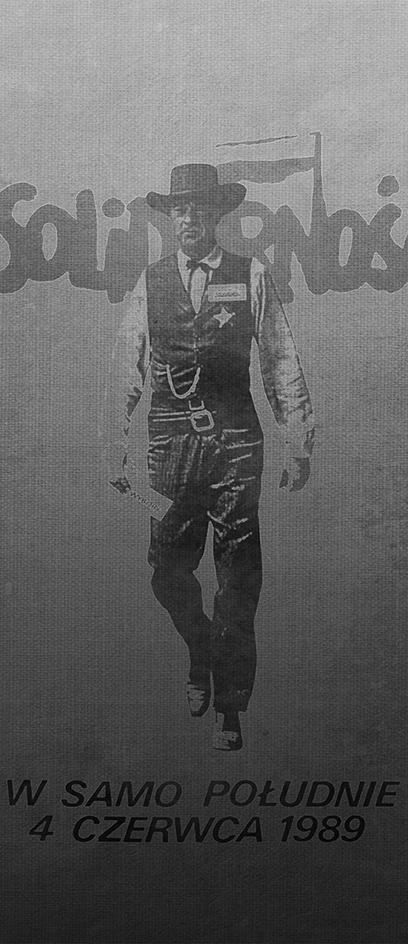
Solidarność
Independent Self-governing Trade Union "Solidarity" - the first after the war independent trade union in Poland, created at the turn of August and September 1980.
You can read about Solidarity today in the history textbooks around the world. The initiative undertaken by the activists of the union in 1980 and in later years, contributed to the collapse of communism in Poland and across Central and Eastern Europe.
The origin of the Solidarity Trade Union is closely connected with the August events - the wave of strikes on the Polish coast in 1980, mainly in Gdańsk Shipyards. The employees went on strike, expressing opposition to inept policy of the communist authorities, which led to a socio-economic crisis in the country. In a short span of time the protest was joined by a majority of state enterprises from the coast and other parts of the country.
The name Solidarity appeared for the first time on the banners of demonstrators in August 1980 as an expression of social solidarity in the fight for common interests. The union officially started operating on November 10 - the day of of its registration. Lech Wałęsa became the face of the organization and its chairman - a simple electrician who by natural charisma and through his devoted companions, acting on a local level (such as Zbigniew Bujak, Anna Walentynowicz and Andrzej Gwiazda), gave rise to hopes for a political breakthrough throughout Polish society.
Throughout the year, Solidarity organized dozens of strikes and demonstrations opposing the actions of the authorities. There were many disagreements and misunderstandings between the two sides, even open confrontations. A great shock was caused among the activists of the Communist Party by the adoption during the Solidarity congress in September 1981 of Posłanie do ludzi pracy Europy Wschodniej (Message to the working people of Eastern Europe), calling on union members in countries of the Soviet bloc to the common struggle for their rights.
Bold actions of the Solidarity were suppressed brutally, when the December 13, 1981 martial law was Introduced in Poland. The authorities, hiding behind concerns about the good of the country, outlawed the union and interned approximately five thousand activists (including Wałęsa) in 50 detention centres. Those who managed to avoid imprisonment, began to actively operate in the underground.
After the lifting of martial law in 1983 and releasing the majority of the Solidarity members, the union resumed its active work. In 1988 a new wave of strikes began which directly caused the start of talks with the government aimed at reforming the existing political system.
In April of 1989 Solidarity was again legalized, and two months later, between 4 and 18 June, the first partially free parliamentary elections were held (popularly called June elections). The results were a success for Solidarity. Union activists received every parliamentary seat available for election, resulting in the formation of the first non-communist government of Prime Minister Tadeusz Mazowiecki. The Solidarity friendly electorate also decided on Lech Wałęsa's victory in the presidential elections in 1990.
In the nineties, the influence of Solidarity significantly weakened, mainly due to the departure of part of its activists and start of their political career in newly created parties. The main objective, a regime change, had been achieved, and now it was time to focus on finer details. The union is still in existence today, defending the interests of various professional groups.
Do you know?
- On 3-5 August 1981 Warsaw was home to one of the biggest Solidarity demonstrations before the introduction of martial law. The roundabout at the intersection of Marszałkowska and Aleje Jerozolimskie was completely blockaded, one of the busiest places in the capital. The demonstration was a response to the government's decision to lower food rations available on the market.
- In response to the banning of Solidarity in December 1981, a lot of strikes broke out throughout the country, which were brutally suppressed by the authorities. The bloodiest clashes happened during the liquidation of the strike in Wujek coal mine in Katowice. Nine miners were killed during the pacification, and several dozen were injured.
- In 1996 a decision was undertaken to bring back the idea of a social movement of the eighties, founding a political party associated with Solidary Trade Union – Akcja Wyborcza Solidarność (Solidarity Electoral Action or AWS). AWS achieved success in parliamentary elections in December 1997, however four years later, it did not retain any seats in the parliament, leading to its dissolution.






